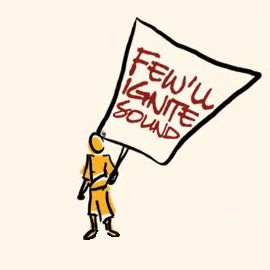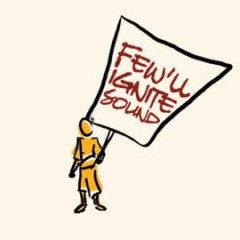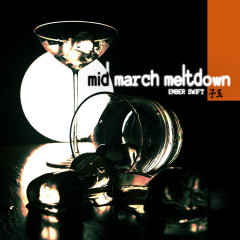“Beating My Head Against the Wall” or “Beating the Odds”?
A reflection on longevity vs. celebrity
in the music business
If only I could count the number of times an old friend or previous fan reconnected with me and began the exchange with this exclamation:
“Wow, you’re still at it? Amazing! I had no idea you were still doing music.”
So what is the implication here? Is an artist supposed to stop writing songs, creating music, performing, pursuing the dream just because she has passed a certain stage in life? Or, is there an underhanded notion that music, as a vocation, is only relevant if it leads to a socially-accepted definition of celebrity? Ergo, if it hasn’t, then it’s no longer credible?
There’s also the likelihood this is purely innocent. People move on and change, and many assume that if an artist is not supported by mass media, then the artist has likely moved on too…. to something other than art-making, as though it is an activity we can dabble in, as though we can tire of it, as though we have a choice in the matter.
This kind of comment reminds me of when I became a mother in China back in 2012. I was regularly confronted with the critical opinions of the older generation, many of which dismissed my continued desire to have a music vocation as “过去了 in the past” and “结束了 over.” At first, I deemed this a cultural difference. In Chinese thinking, such an important rite of passage as parenthood presumes the abandonment of something as “frivolous” as music-making.
Of course, I don’t agree with this. I know many artists in the West who are still making music and performing their work (at least, in pre-pandemic times) who are parents and/or long considered ‘older’ artists. They no longer represent the youth culture with their work or image and this is not even remotely a concern.
Let’s go further and define “the dream.” Many assume a music dream is synonymous with becoming a superstar. The whole industry backs this assumption. The advent of competitive TV shows that are named after this notion is proof in point, which started with the old “Star Search” and has led to “American Idol” and “X Factor” etc., all suggesting that a successful artist is only one who rises above the rest and becomes known widely. Otherwise, success is not (yet) achieved and the continued pursuit (after a while) is tantamount to beating one’s head against the wall.
What other kinds of dreams are there?
Years ago, in 1997, I started my independent label “Few’ll Ignite Sound” when indie labels were a new concept. It was the path I chose to walk, which was not exactly mainstream, and who knows if it was a good or a bad choice for my career? Do we ever really know these things? In retrospect, I also concede that this decision to sidestep all outside labels probably disabled many doors from opening at a time when major stages, festivals and radio play were all, more-or-less, still governed by the majors.
But, that’s what I did. I had control over my art. I had my fan-base. I had a full-time touring and sustainable career, which is all I’d ever asked of the dream: a professional platform on which to do what I do best, and that’s make music. It paid my bills. I was at peace.
Nevertheless, time took its toll. Somewhere around 2007, after nearly a decade of relentless touring and shitty bars and debt-payoff cycles that were exhausting, I took a sabbatical to China and then, one thing led to another, and I moved across the world. This is just a summary, but during a time of great personal transition (not unlike this COVID-19 era for everyone), I rediscovered a life without the pressures of the music industry, which had left my head spinning. I learned how to breathe again and reconnect with the joy of music-making in a pure sense, without all of these false notions of celebrity or ladder-climbing, which is all just about ego anyway.
During that break-taking period twelve years ago, what rose to the surface was a core truth: I am a music-maker, with or without an industry, with or without a name to promote. It stopped mattering if Ember Swift became well-known or recognized; it finally started to be what it should have always been about: the craft. About improving. About putting in the time to refine. About loving the process as much as the result. After that break, I re-launched a career based in Asia that had many of the characteristics of my old career, with the noted absence of the head-spinning pressures, jadedness and disillusionment.
Because, really, disillusion is a dark forest. Once you realize you’re in it, there’s no way out except through. I had to disappear in order to re-appear—to myself. Whether or not people remembered me, fans cared, anyone bought my albums after I’d finally exited that forest was irrelevant. The trick is not to get lost in the darkness and remember that there’s always an edge to that forest if you keep walking, one step in front of the other.
After my second child and during another period of quiet in my performance career (having two babies at home as the reason), in 2014 I was invited onto Chinese television. A competition platform similar to those Western ones, I got roped into a series of episodes that ultimately led to winning third place nationally on “Mama Miya,” a talent show specifically designed for mothers. How ironic to have walked a path of non-mainstream musical activities for so long only to then choose involvement in one of the most mainstream musical activities of its time: a music TV show. What’s more, it was broadcast on Saturday evenings for the most populous country in the world.
It was fun, I guess, to sing and perform in that context (and I insisted on it being my own music despite their initial opposition), but regardless of such extreme exposure on prime television, unsurprisingly, it did nothing to propel my career any further than it had already gone. It didn’t lead to label representation in this region (something that would probably benefit me in this day and age), or more shows, or an increased public profile.
I quickly discovered my role in that program was to be the token foreigner, nothing more. I chalked it up to an amusing anecdote and continued to make music for the sake of the craft, making peace with it all. Besides, by then, I could see through this false notion of celebrity and the whole experience felt like a giant arm trying to tug me back into the disillusionment forest.
I refuse to be lured.
Fast forward to 2020 and the entire world is in a similar state of pause to the one that I imposed upon myself twelve years ago by coming to China in the first place. About this, to other music-makers, I say stop worrying. There is no need to stress about time lost. Instead, this is precious time to consider carefully the true nature of the pursuit itself.
I keep hearing about the importance of “maintaining artistic relevance in COVID times” through things like live broadcasts or online performances or more regular social media posts, etc. It makes me laugh. Relevance to whom? What is this relevance they speak of when such a concept is entirely subjective? As long as our work is relevant to ourselves, we’re good. If it becomes relevant to others, it’s a bonus.
Last but not least, during these days without shows and tours, I’ve had several people insinuate (if not outright say) that, y’know, maybe I should consider, uhm, pursuing, well, y’know…. something else?!
One friend added this: “Surely there’s an essential service that could use your skills these days?”
I have two answers to this one. The first is that music is always going to be essential for someone. That’s irrefutably subjective. The second is that there’s no crime in doing other things for survival and/or for a period of time; it’s not a indictment against anyone’s commitment to being a music-maker.
I say if it takes us another two years to have touring circuits again, that’s okay. If live music becomes the final frontier in a world entering a great recession and we have to redefine our entire professional outlook, that’s okay too. It’s all okay because nothing contradicts the core truth, which is that we are music-makers and this need not change, whether happening in private or public, for a select few or for the masses, with humility or with great pride.
Personally, I’m almost finished my (lucky) 13th album and I know it’s the best body of work I have ever created. Time doesn’t dull the blade; it sharpens it. And if these pandemic times means a further delayed release, it’s okay because, in my view, if this album isn’t heard by millions but only a select few, it doesn’t indicate that I’m beating my head against a wall.
On the contrary, I’m beating the odds. Longevity in music-making—the journey all the way through that disillusionment forest I was speaking about—is a form of success in and of itself, and one that only time bestows upon us.
I recently met a woman who had seen me perform about fifteen years ago in the US. We met, by chance, in Beijing (socially, I might add, since gigs are all cancelled indefinitely here) and she described me to the friend she was with in these words:
“Ember used to be a quite a name in the music circuit. She’s somewhat of a celebrity.”
I lifted my eyebrows at this, widened my eyes like a cartoon character, and said to her friend with a wink,
“Whatever that’s worth?!”












